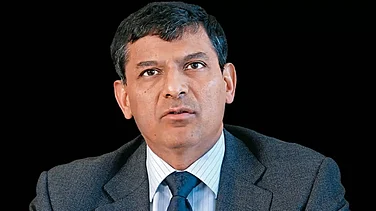The decision taken by the capital markets regulator, the Securities and Exchange Board of India (Sebi), on September 28, to allow acquirers of the target company to delist seamlessly will play a significant role in public mergers and acquisitions (M&A) in corporate India.
How Sebi Guidelines Are Likely to Play Out
Delisting reform may spur M&A activities, while introduction of silver ETFs will expand the commodity universe for the investors.

Sebi has done away with the current requirement of maintaining minimum public shareholding at 25 per cent, and then attempt a delisting process, as per the reverse book-building process. First-time acquirers can now attempt a delisting by offering what they believe is a commercially reasonable price without having to worry about an exorbitant price thrown up by the reverse book-building method.
Vikram Raghani, partner, J Sagar & Associates, said, “With increasing shareholder activism and sound guidance provided to minority shareholders on the reasonableness of the price offered, this should be an attractive proposition for public M&A. The process also allows the acquirer another bite at the cherry, if the price offered for delisting is not attractive enough to get to the 90 per cent response.”
It is unlikely that the second option will be used by too many acquirers since it would make the transaction lengthy from a timeline perspective. Nevertheless, the two options put together seem to balance the equation for acquirers and minority shareholders, Raghani said.
Sebi also considered and approved the amendments to the Sebi (Listing Obligations and Disclosure Requirements) Regulations, 2015, regarding the regulatory provisions on related party transactions (RPTs). The scope of the regulatory framework has been extended to transactions with shareholders holding 10 per cent or more in the company (20 per cent for now which will eventually be transitioned to 10 per cent).
Makarand Joshi, founding partner, MMJC and Associates, said, “Simply put, any transaction benefiting a related party (even indirectly) would need the approval of the audit committee and the shareholders of a listed company. When the transaction is with a third party but may benefit a related party, it would be difficult to identify and can sometimes lead to unnecessary allegations of violation on corporates.”
Raghani said, “From a governance standpoint, this only makes the rules tighter which should work well for all stakeholders involved,” said Raghani.
In January 2020, Sebi issued a concept paper overhauling the RPT framework, but the discussion was put on the backburner as corporate India had many reservations about it.
The Sebi board approved the creation of the Social Stock Exchange (SSE), under its regulatory ambit, for fund raising by social enterprises. SSE shall be a separate segment of the existing stock exchanges.
“India had recently slipped two places to 117th rank on the 17 sustainable development goals adopted by 193 UN member countries that includes ending hunger, quality education, gender equality, among several others. Given that CSR became mandatory in January 2021, the push for Social Stock Exchange was a case in point to enable eligible NGOs to raise funds for a social cause,” Joshi said.
Sebi’s decision of allowing introduction of silver exchange-traded funds (ETFs) brings in another investible commodity for investors. Silver ETFs are popular globally along with gold ETFs.
Kaustubh Belapurkar, director-manager research, Morningstar India, said, “Investors should be judicious with their investment and allocation as silver prices, like any other commodity’s, can be volatile.
The introduction of silver ETFs will expand the options available for investing in commodities through stock exchanges. This can be a game-changer as it deepens the securities market for the investors.
Swapnil Bhaskar, business head, Niyo Money, a platform for millennials to invest and a part of neo-bank Niyo, said, “Indians have a deep-rooted love for buying gold and silver. Silver ETFs will give them a seamless way of buying silver. They don't have to worry about its purity or theft, unlike the case for physical holding of silver, as the underlying asset will be managed by professional vault managers.”
Silver is cheaper than gold. Since it is used for various applications, especially in the industrial market, silver has maintained its demand over the decades. Silver has been traded and has been an integral part of investors’ portfolios, globally. In India, investors invest in silver through many ways like the traditional route, including silver bars, silver coins, and silver jewellery. Other forms of investing in silver includes silver futures.
Until now, silver was available in BANK branches tracking the Silver MCX price, but it was a hassle due to costs associated with physical holdings such as for storage and the risks that follow, it was a hassle for the investors.
Priti Rathi Gupta, founder, LXME, India’s first financial platform for women, said, “Introduction of silver ETFs will solve major problems for the investors. To begin with, investing in silver in the home country becomes effortlessly accessible. Investors who are tired of the complexities of futures contracts and the dangers that are associated with them could find this mode more comfortable.”
Sebi said certain safeguards with respect to silver ETFs must be in line with the existing regulatory mechanism for gold ETFs. This means the regulator is expected to continue with the same practice of making fund houses own physical silver bars for silver ETFs.
By using this physically backed strategy, this fund can provide a more realistic pricing of the metal.

























